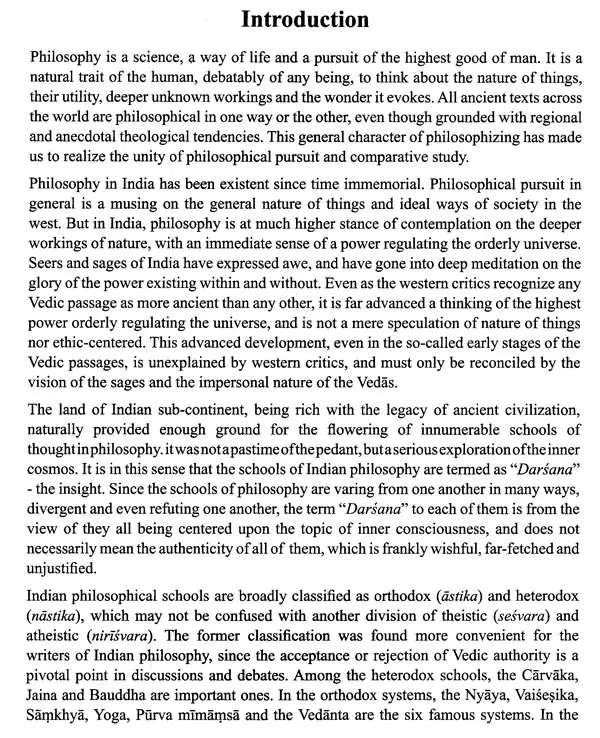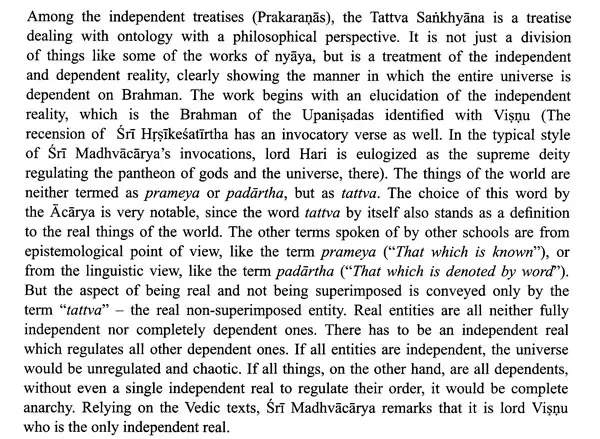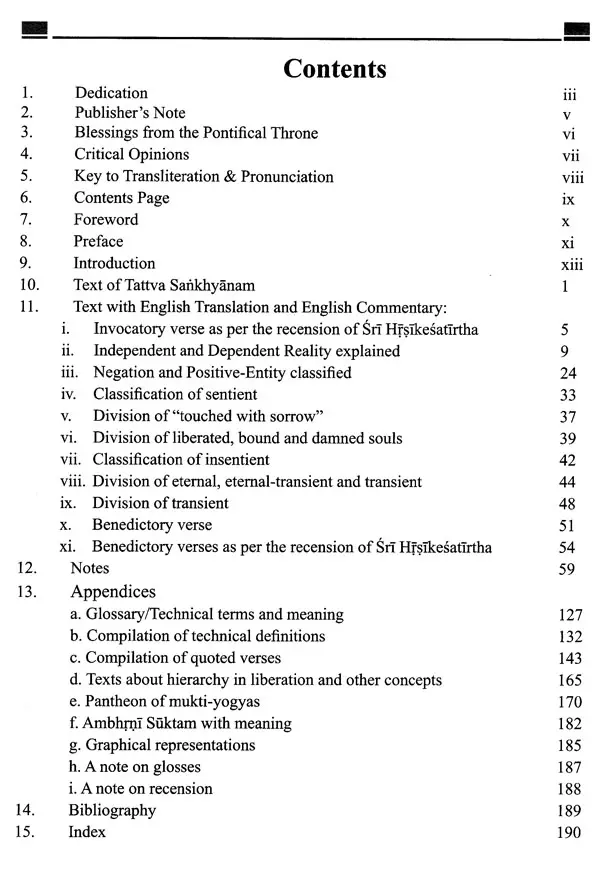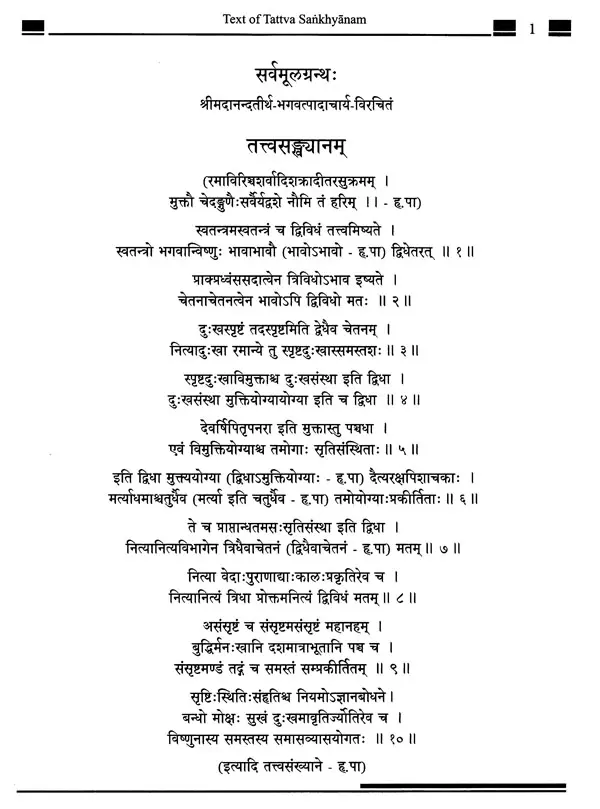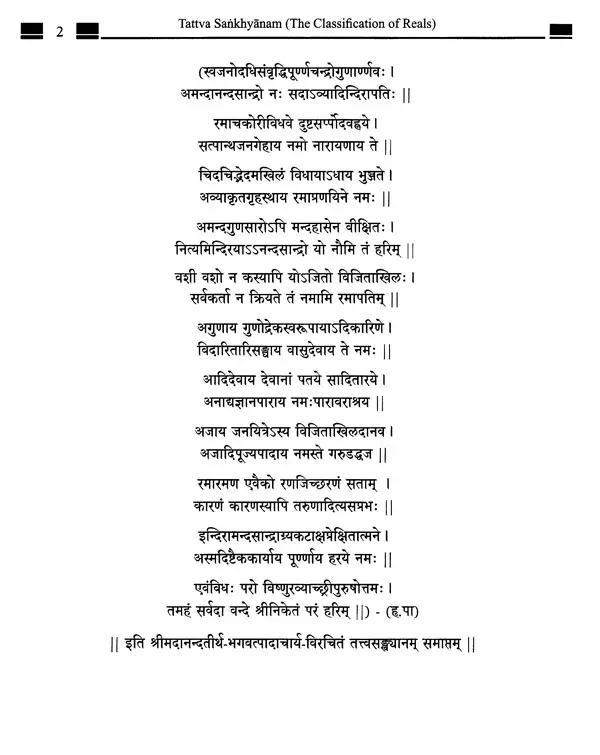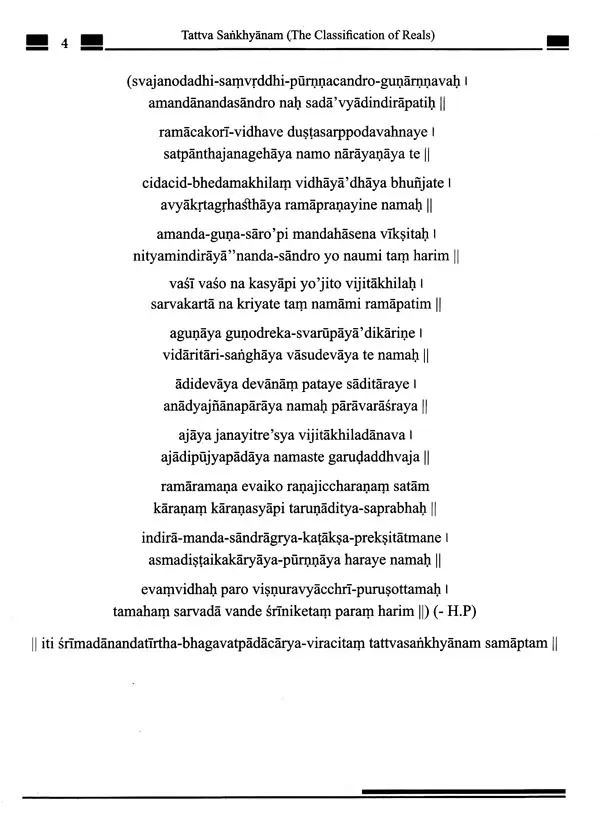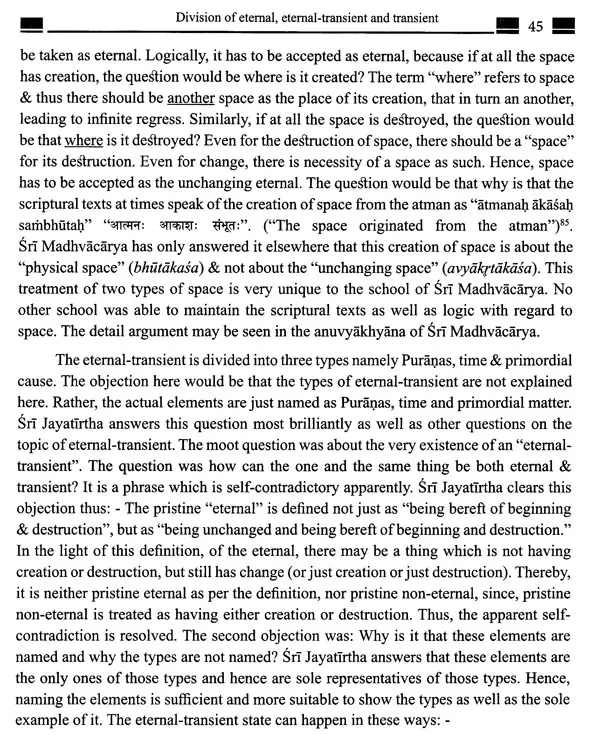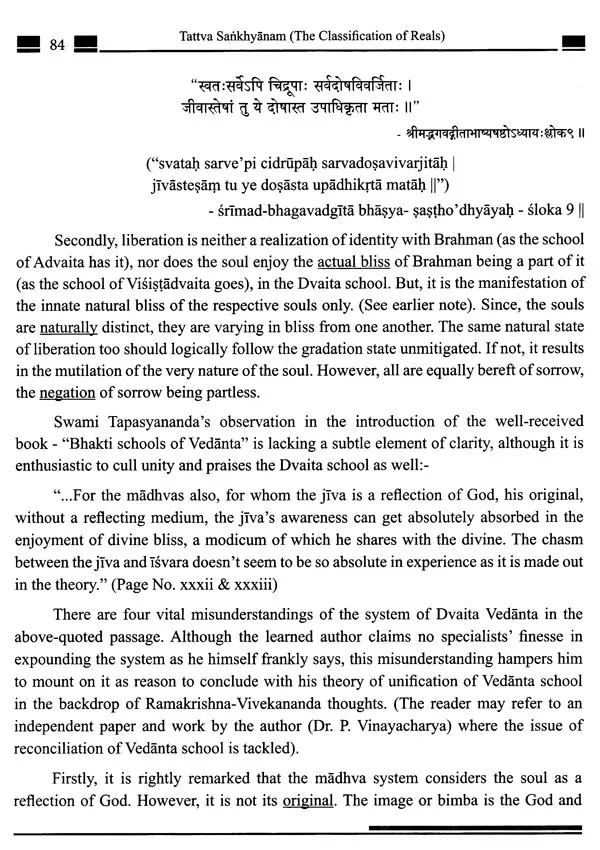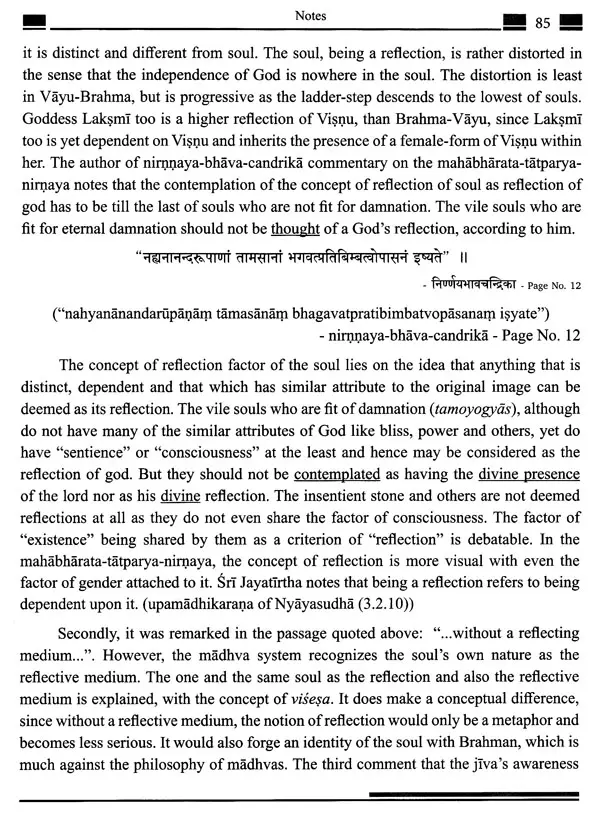
Tattva Sankhyanam- The Classification of Reals (Volume- I)
Book Specification
| Item Code: | UAJ663 |
| Author: | P. Vinayacharya |
| Publisher: | Tara Prakashana, Bengaluru |
| Language: | Sanskrit Text With Transliteration and English Translation |
| Edition: | 2022 |
| ISBN: | 9788195138364 |
| Pages: | 192 |
| Cover: | HARDCOVER |
| Other Details | 10.00 X 7.50 inch |
| Weight | 550 gm |
Book Description
Sri Madhvācārya's works are highly philosophical and full of quotations, unassailable logic and brevity. The Tattva Sankhyanam is a work of division of things from a philosophical point of view. It shows how the entire universe is dependent on the supreme being-Brahman. As Sri Jayatirtha remarks, it is this knowledge of Brahman as the regulator of the entire universe that fetches liberation to the aspirant.
I most delighted that the complete works of Sri Madhvācārya is appearing in English with critical study from Tara Prakashan and Foundation for the Preservation of Knowledge. The author, Vidwan Dr. P. Vinayacharya is a well-known scholar of high merit who has in-depth knowledge in various Šāstras traditionally. He is equipped with the knowledge of western philosophy as well. He is a writer who wields his pen effectively in English. I congratulate him for this scholarly work. I wish to say that the entire series shall be a great achievement of the scholar and shall be in the book-racks of world philosophy forever.
Strangely enough for the times where philosophical works English versions, all of Sri Madhvacärya's works were not available in English. The well-written works of Dr. B.N.K Sharma no doubt had filled the gap of standard works on Sri Madhvācārya, but the complete works of Sri Madhvācārya was yet unfulfilled. English translations of individual works appeared about 8 decades ago by Sri Subba Rao and others. However, a complete set of all the available works of Sri Madhvācārya was yet pending. This major lacuna for so long a time had adverse effect on academia as well. Many writers like Dr. S. Radhakrishnan, Prof. M. Hiriyanna, Swami Tapasyananda and others could not. gain access to the rich material of the Dvaita Vedanta School comprehensively. This naturally paved way for a lack of proper rightful place for Sri Madhväcārya's philosophy in the academia. After about 5 decades of this scenario, as a god-commissioned task in the true sense, the divine grace has been showered upon me to write English translation and commentary critically to all the available works of Sri Madhvācārya.
I profusely thank Sri Prof. P. R. Mukund, Founder Trustee of the Foundation for the Preservation of Knowledge, New York and also Tara Prakashan, Bengaluru, for making this great work really happen today. Sri Prof. P. R. Mukund is himself a philosophically oriented personality who has penned many such works. I am also happy to say that myself and Prof. P. R. Mukund belong to the same family-tree, where my great-great -grandfather and his great-grandfather were brothers! The organization founded by him has envisioned to bring out all the works in international standards, which I believe shall be inimitable versions and shall be in vogue as long the English philosophical works are read, if I err not. I believe this year 2022 is an epoch period in the Indian philosophical academia at large, particularly in the academics of Dvaita school of Vedanta.
Philosophy in India has been existent since time immemorial. Philosophical pursuit in general is a musing on the general nature of things and ideal ways of society in the west. But in India, philosophy is at much higher stance of contemplation on the deeper workings of nature, with an immediate sense of a power regulating the orderly universe. Seers and sages of India have expressed awe, and have gone into deep meditation on the glory of the power existing within and without. Even as the western critics recognize any Vedic passage as more ancient than any other, it is far advanced a thinking of the highest. power orderly regulating the universe, and is not a mere speculation of nature of things nor ethic-centered. This advanced development, even in the so-called early stages of the Vedic passages, is unexplained by western critics, and must only be reconciled by the vision of the sages and the impersonal nature of the Vedas.
The land of Indian sub-continent, being rich with the legacy of ancient civilization, naturally provided enough ground for the flowering of innumerable schools of thought in philosophy; it was not a pastime of the pedant, but a serious exploration of the inner cosmos. It is in this sense that the schools of Indian philosophy are termed as "Darsana" - the insight. Since the schools of philosophy are varying from one another in many ways, divergent and even refuting one another, the term "Darsana" to each of them is from the view of they all being centered upon the topic of inner consciousness, and does not necessarily mean the authenticity of all of them, which is frankly wishful, far-fetched and unjustified.
Indian philosophical schools are broadly classified as orthodox (astika) and heterodox (nästika), which may not be confused with another division of theistic (sešvara) and atheistic (nirisvara). The former classification was found more convenient for the writers of Indian philosophy, since the acceptant or rejection of Vedic authority is a pivotal point in discussions and debates. Among the heterodox schools, the Caraka, Jaina and Bauddha are important ones. In the orthodox systems, the Nyāya, Vaisesika, Samkhya, Yoga, Pūrva mīmāmsã and the Vedanta are the six famous systems.
**Contents and Sample Pages**

